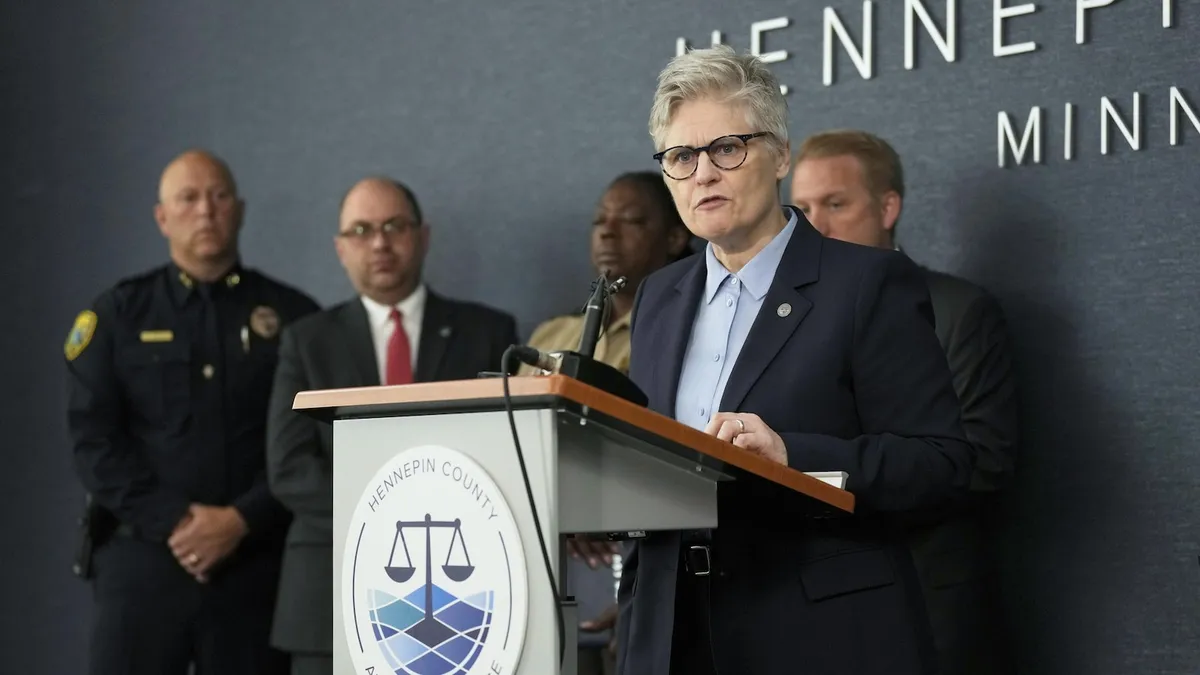
In a shocking turn of events, Vance Boelter has been charged in the tragic shooting of prominent Minnesota lawmaker Melissa Hortman and her husband, Mark Hortman, raising the specter of the death penalty in a state that has not executed anyone since 1906. This case has captured national attention, especially given the complexities surrounding state and federal jurisdiction in criminal prosecutions.
Boelter is accused of fatally shooting the former Democratic House Speaker and her husband in their home in the northern suburbs of Minneapolis early on Saturday. Prior to this heinous act, he allegedly shot and injured another lawmaker, Senator John Hoffman, and his wife, Yvette, who reside nearby. Boelter's surrender on Sunday night followed what authorities described as the largest manhunt in Minnesota's history.
On Monday, federal prosecutors announced that Boelter faces serious charges that could lead to the death penalty. This is significant as Minnesota abolished capital punishment in 1911, and the last execution in the state was a botched hanging in 1906. The federal charges against Boelter include two counts that carry the potential for the death penalty. Acting U.S. Attorney Joseph Thompson stated at a news conference, “Will we seek the death penalty? It’s too early to tell. That is one of the options.”
The intervention by federal authorities has added a layer of complexity to the case, particularly as Hennepin County Attorney Mary Moriarty was set to prosecute Boelter on state charges. Her office had planned to bring first-degree murder charges against him, which would mandate a life sentence without parole. Moriarty expressed concerns about the shift in jurisdiction, stating, “there's a tension” between the federal and state investigations.
Since the Supreme Court reinstated capital punishment in 1976, federal prosecutors have not sought the death penalty in cases originating from Minnesota. However, the political climate under the Trump administration saw a significant increase in federal executions, with 13 carried out during his first term, more than any other president in modern history. Recently, Attorney General Pam Bondi lifted a moratorium on federal executions that had been in place since 2021, allowing federal prosecutors to pursue the death penalty in several cases.
Legal experts have noted the unique challenges that federal prosecutors may face in seeking the death penalty in Minnesota, a state with a long-standing opposition to capital punishment. Mark Osler, a death penalty expert from the University of St. Thomas School of Law, remarked, “a jury pool drawn from the citizens of a state that has rejected the death penalty for over 100 years” presents a significant hurdle for federal prosecutors.
Boelter's next court appearance is scheduled for June 27 in federal court, with no further state court appearances planned at this time. Thompson clarified that the federal case does not negate the state charges, emphasizing that both jurisdictions will continue their respective legal proceedings.
As this case unfolds, the interplay between federal and state laws will be closely scrutinized, and the outcomes could have lasting implications on the future of the death penalty in Minnesota.